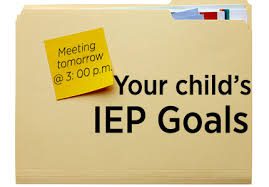Romancing the IEP
The Full Life Ahead Foundation recently ask me to write for their new blog on the topic, “The Individual Educational Plan” (otherwise known as the IEP). Both Mikelle and I have a long history with the IEP. For me, first as a young special educator back in the 1970’s. Then Mikelle and I cut our “system change teeth” on the often razor sharp edges of the annual IEP meeting.
Mikelle has been out of school now for eight years, having graduated from East High School in 2004 as an “outstanding senior.” Life in public education has changed since Mikelle’s graduation. Consider the pressures of testing, school violence, bullying and administrative oversights regarding her participation in the processes, as well as standardized testing and advanced technology – these were conditions and challenges that I, as a young special education instructor, did not have the deal with in those early days.
Curious, I wondered if our experience was different from those of other young special educators and students. Mikelle and I approached our nearest special educator, a delightful young woman who, coincidentally, resides in the same condominium building as we exited the elevator into our lobby.
“Danielle, what is the latest on IEP’s?” I inquired.
Surprisingly, not much had changed with the process itself. Some processes worked, others didn’t. As we shared our experiences, though, I came to realize that IEP’s seemed very similar to a marriage licenses. A piece of paper doesn’t guarantee a successful marriage or educational experience.
Let me explain. Both are legal documents. Once signed, both documents often disappear, one into a file at the County Court, the other locked into a file cabinet in a little room at the local school and more often than not, thrown onto a pile of paperwork at the family home.
In and of themselves, both the marriage license and the IEP offer legal protection and binding agreements between parties, operating much like a contract protecting the rights and responsibilities of each party. A marriage license protects a couple in the areas of finance, property, children, medical information and other benefits. An IEP protects a student’s right to a free and appropriate education in the Least Restrictive Environment (LRE), provides for supplementary aids and services needed to assist a student in their educational program and delivers an assessment to determine their specific needs with parental consent.
If you focus strictly on the legal aspects of a marriage license or an IEP, each can become lifeless, void of commitment and heart. If an IEP is treated like a box to be checked at a bureaucracy-driven meeting in a non-descript meeting room, the stage is set for Due Process, an IEP’s version of divorce. Ugly can set in, people often take sides, and the student is left to flounder and fail.
There have been many IEP meetings over the course of Mikelle’s education where we would sit in those sterile rooms full of “professionals”. I knew I had to romance the IEP, much like you rekindle a romance. IEP’s need passion, commitment, and partnership. The challenge of educating a special need student is not the overwhelming factor; rather, it is the lack of heart and creativity which can suck the soul out of a student’s education.
Think of an IEP as a sacred contract among student, parent, and educator. The creative process which flows through all of us is akin to the sun, water and fertile soil – this is where goals and objectives, once dry, barren and struggling, become vibrant and effective.
Mikelle and I believe an IEP starts with a compelling vision; an idea married to a feeling that guides you beyond the school year is essential to rekindling the process. The vision is what makes the IEP exciting and fills a bureaucratic meeting with passion.
Parents and students may not yet have a powerful vision. Even if you don’t know the details yet, however, focusing on a simple vision like, “My child deserves a full life, not a half-empty, barebones, back-of-the-school life” will do. Teachers appreciate having a “goal” to aim for and to focus school activities around. The more inspiration and ideas you can give them, the more they are able to focus available educational resources in the direction of dreams rather than desperation.
Vision ignites the goal setting process integrated within the IEP and it fosters strong relationships as common goals unite people. Be careful not to assume goals are always tied to more money. Many times, available resources just need to be allocated differently.
Like marriage, IEP’s need time and attention. Used wisely, and IEP can result in great satisfaction.
Here are some quick tips for rekindling an IEP.Initiate positive story telling time.
Teach your student to tell positive stories about their accomplishments, at the dinner table, while doing errands, or at the local coffeehouse, for instance. These stories fuel the vision and demonstrate action and accomplishment. The accomplishments don’t need to be big, they have to show interest and engagement.
Reach out to your educational team.
Your individual educators are people, not processes or systems. Connect to their interests, find out their successes, learn what you have in common and were their personal and professional visions are headed. Send “Thank You’s” and show appreciation. Relationship 101—use your heart.
Have fun.
You love your child. Make the IEP a fun event. The rest of the team will follow suit. They may leave their professional hats on but, most of them will appreciate the effort.
Offer your expertise and understanding as a parent. You are a reservoir of experience and knowledge when it comes to your student – use it!
Lead with kindness.
If none the above ideas seem to work, bring in an advocate or mediator.
Additional Resources:
US Department of Education
https://www2.ed.gov/parents/needs/speced/iepguide/index.html
National Association of Special Educators
https://www.naset.org/3321.0.html
Center for Parent Information and Services
https://www.parentcenterhub.org/repository/pa12/
From Emotions to Advocacy, Peter W. D. Wright


